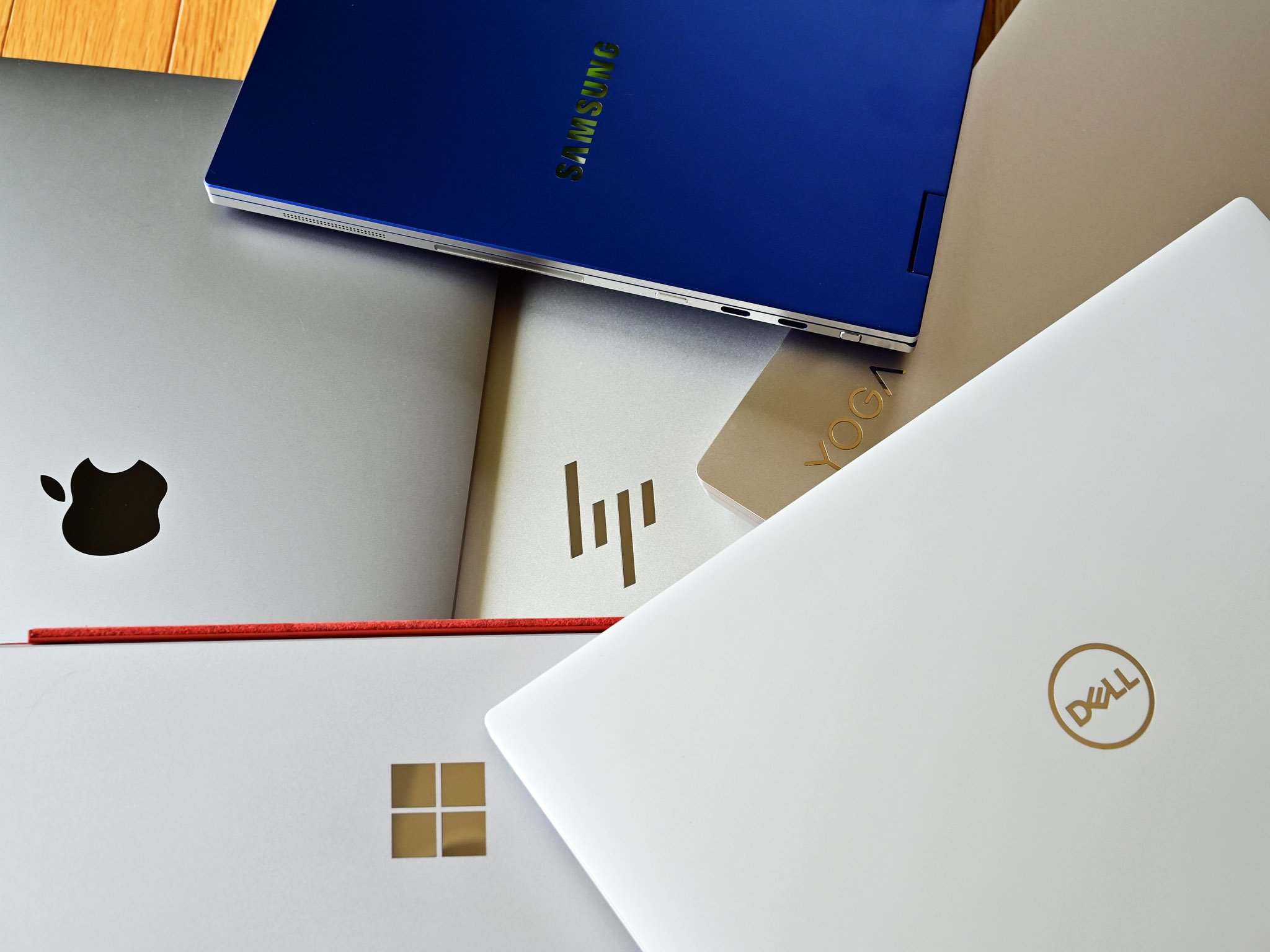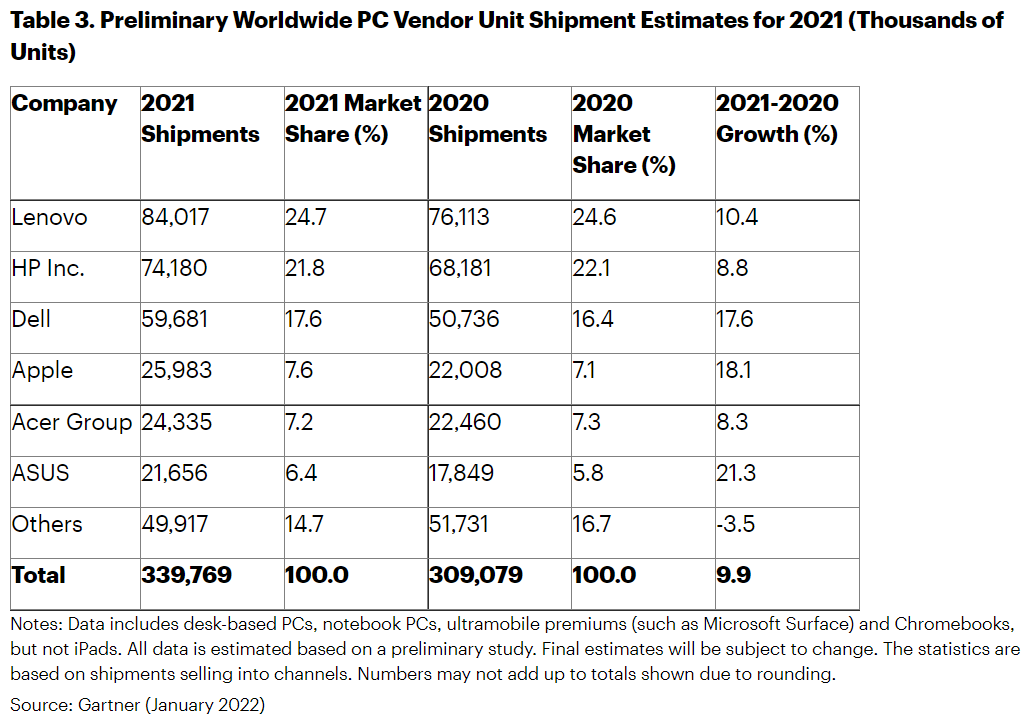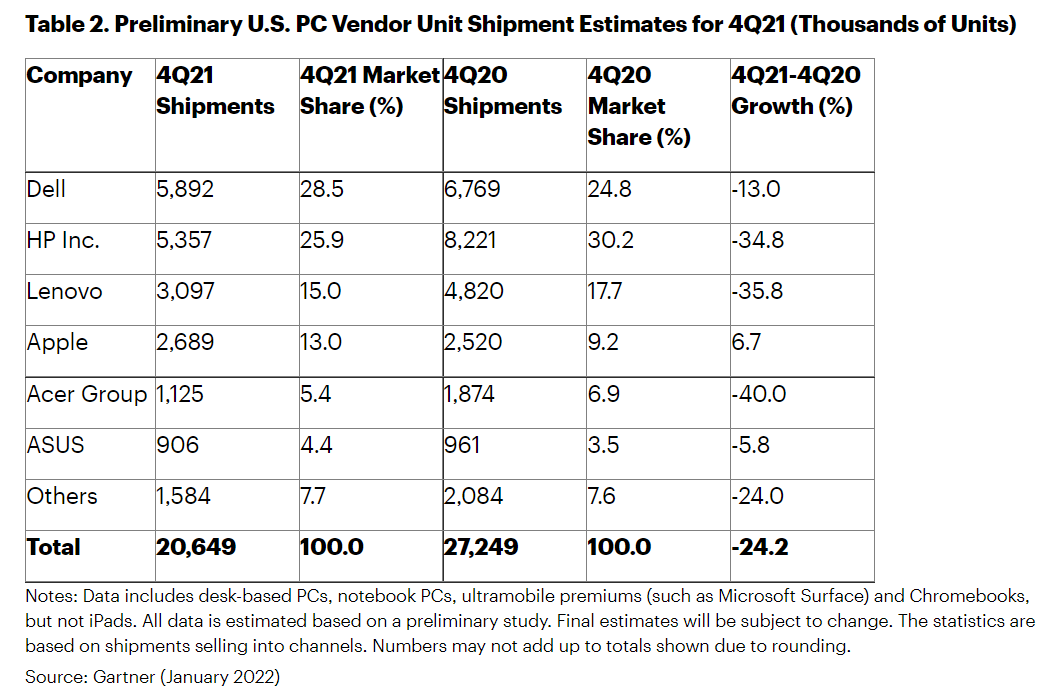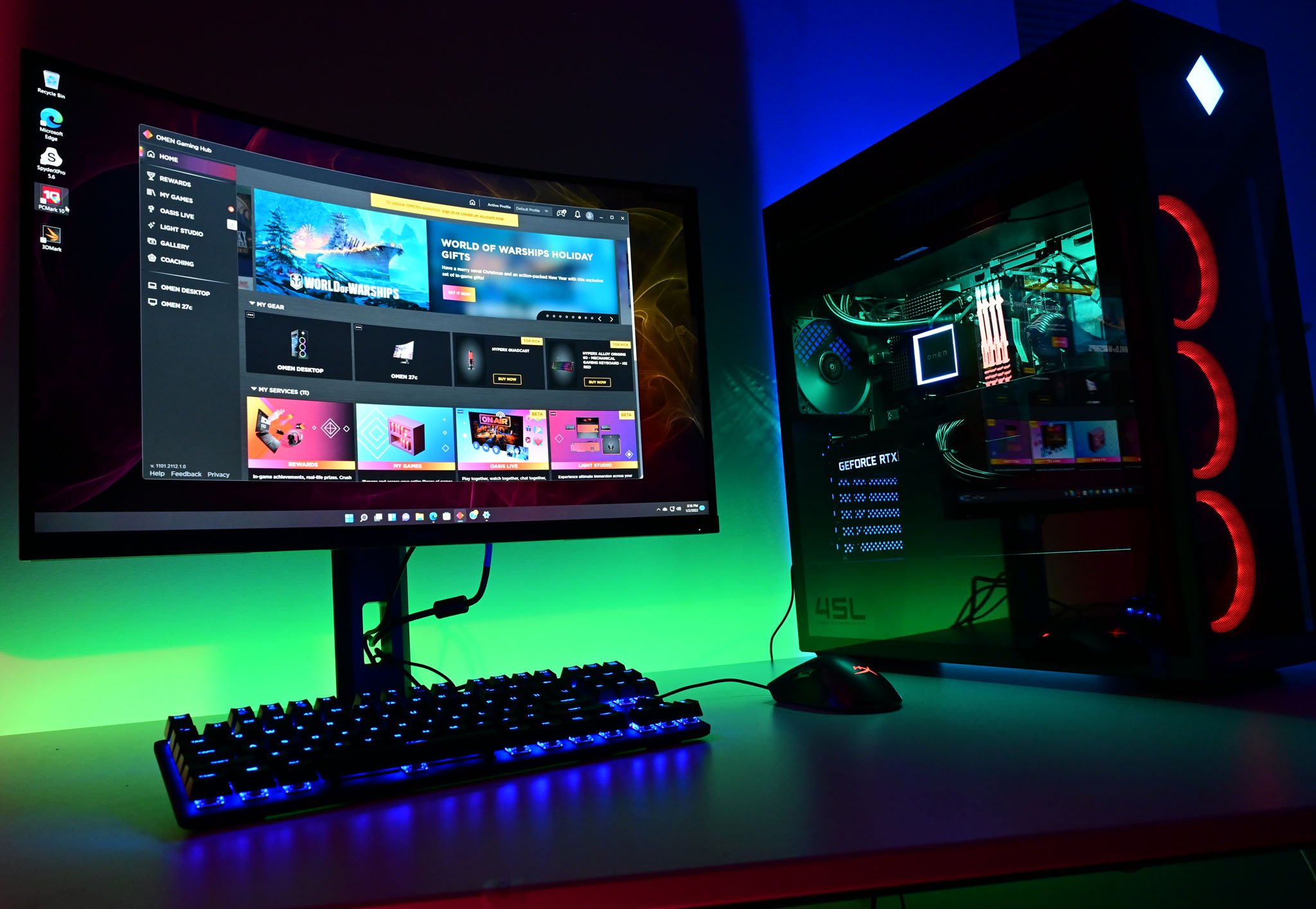PC shipments not expected to decline to pre-pandemic levels 'for at least 2-3 years'
A new report from Gartner reveals a decline in Chromebook demand but a strong future for PCs.

What you need to know
- Gartner reports that 88.4M PCs shipped last quarter (-5% YoY), with 339.8M for all of 2021 (+9.9% YoY).
- Demand for Google Chromebooks drove much of the quarterly decline.
- Annual PC shipment volumes are not expected to decline to pre-pandemic levels for at least 2-3 years.
- Post-pandemic, remote work, and "newly established ways of using PCs will remain regular practice."
Following the report from Canalys, Gartner is now confirming similar data regarding shipments of PCs from last quarter as well as the entire year of 2021, which did better than expected.

Gartner claims 88.4 million PCs were shipped in Q4 2021, a 5% year-on-year (YoY) decline, and Canalys pegged the number slightly higher at 91 million. For all of 2021, Gartner's report states 339.8 million PCs were shipped, which is very close to Canalys's 341 million.
Interestingly, Gartner suggests the reason for last quarter's decline was "modest consumer demand" for the holiday season, but also that the main driver was "the collapse in demand for Chromebooks." That theme of Chromebook demand severely crashing has been circulating since Q3 2021, when a decline of 29.8% YoY was observed, a trend that is apparently continuing.
The rest of Gartner's analysis is quite interesting. While they note this new data "likely signifies the end of the massive and unexpected growth in PC demand triggered by the pandemic," the decline "only slightly tempered the PC market's growth in 2021," which was overall positive with a nearly 10% YoY increase over 2020.
Additionally, besides some slight weakening in demand from consumers and severe drops in Chromebooks, it was supply-chain constraints that again negatively affected the numbers and OEMs:
The U.S. PC market saw its second consecutive quarter of double-digit decline during the fourth quarter of 2021, with shipments declining 24.2% year-over-year. This decrease was largely driven by weak Chromebook shipments as demand from educational institutions continued to slow. While U.S. business PC sales were generally strong due to the recovering economy and the reopening of offices, supply chain delays impacted shipment volumes, especially in the large enterprise market. The holiday season also saw weaker PC sales than in 2020 due to modest consumer demand.
Those supply chain constraints are expected to abate it won't be alleviated entirely until later in the year.
Top three (again): Lenovo, HP, and Dell

Breaking down by PC OEMs, Gartner has a similar ranking to Canalys in global PC shippers, with Lenovo in the top spot, followed by HP, Dell, Apple, and Acer.
Get the Windows Central Newsletter
All the latest news, reviews, and guides for Windows and Xbox diehards.
Combining Lenovo, HP, Dell, and Acer, all four companies account for 72.7% of global PC shipments. That's a slight increase from 71.8% in 2020 with the same four.
Apple's PC shipments (not including iPads) accounted for 7.7% in 2021 and slightly increased from 6.9% in 2020.
Lenovo saw the most significant decline with a 12% drop for the fourth quarter of 2021 due to "slowed U.S. market, weak Chromebook demand, and supply chain issues, which impeded Lenovo's ability to supply PCs to enterprise customers."
HP, by comparison, navigated the supply chain better with only a 4% YoY decline tempered by "robust growth in the Asia Pacific market."
Dell, again, is the objective winner reporting record revenue last quarter with $28.4 billion. It did the same for FYQ2 2022. Gartner's numbers reflect this, noting it gained market share "notching a fifth consecutive quarter of growth." Shipment volume exceeded 17 million units for the first time in the company's history.
Gartner also breaks down the numbers to the US market, which varies from the global picture. Dell is the top shipper in the US, accounting for 28.5% of all PCs shipped last quarter, and HP was number two, Lenovo in third, and Apple in fourth.
Putting Dell, HP, Lenovo, and Acer together accounted for nearly 75% of all PCs shipped in the US for Q4 2021, down almost 5% YoY. Apple came in at 13%, up from 9.2% YoY, reflecting the accurate perception that Macbook prevalence is higher in the States than the rest of the world.
'Fundamentally changed … PC behavior'

Finally, for forecasting, things are still looking better than anticipated. While many saw the pandemic as a temporary blip, the consensus now seems that it profoundly altered the market, resulting in the PC being more critical than ever.
Mikako Kitagawa, research director at Gartner, notes:
"The pandemic significantly changed business and consumer PC user behavior, as people had to adopt to new ways of working and living. Post-pandemic, some of the newly established ways of using PCs will remain regular practice, such as remote or hybrid workstyles, taking online courses and communicating with friends and family online."
Because of this dramatic shift, Gartner expects the PC market to slow "for at least the next two years," but "annual shipment volumes are not expected to decline to pre-pandemic levels in that period." Just as interestingly, few, if any, believe things will go back to the way they were. Remote work and the creator/gig economy are the new normal.
That slight decline in demand makes sense as the PC market is very mature: Most people own at least one, though increasingly at least two PCs. But, like smartphones (also a flat market), innovations around display technology, including folding screens and new form factors, will attempt to drive further adoption and increase those upgrade cycles. Things like always connected 5G PCs are also becoming increasingly important (especially in the education system), all of which should keep the PC market humming for the foreseeable future, just not at the same rate as 2020-2021.

Daniel Rubino is the Editor-in-chief of Windows Central. He is also the head reviewer, podcast co-host, and analyst. He has been covering Microsoft since 2007 when this site was called WMExperts (and later Windows Phone Central). His interests include Windows, laptops, next-gen computing, and wearable tech. He has reviewed laptops for over 10 years and is particularly fond of 2-in-1 convertibles, Arm64 processors, new form factors, and thin-and-light PCs. Before all this tech stuff, he worked on a Ph.D. in linguistics, performed polysomnographs in NYC, and was a motion-picture operator for 17 years.
